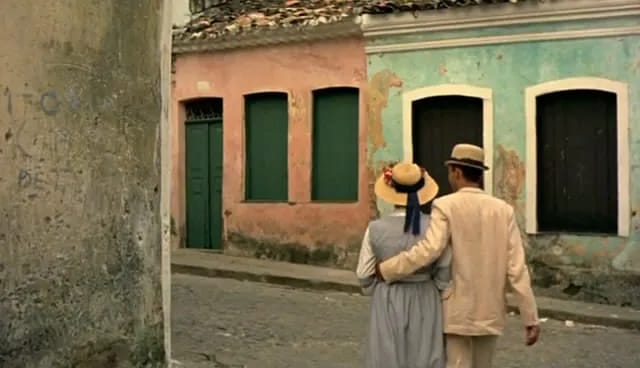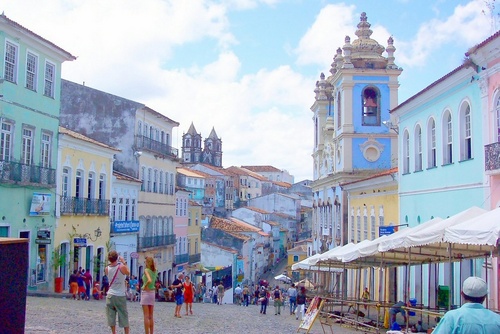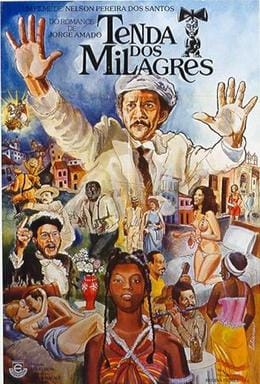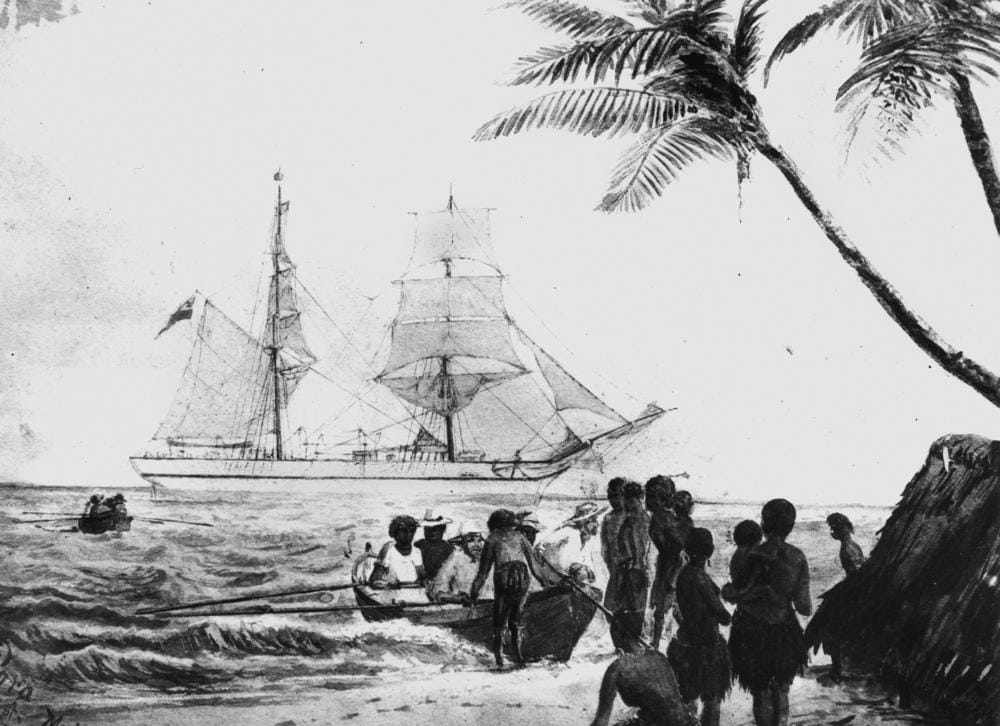Bahia in Brazil

Slavery in Brazil was big business. Because of the high mortality rate, millions more slaves were shipped there from Africa than to anywhere else, including the United States, and Brazil was the last country to free its slaves, in 1888.
Today the state of Bahia and its capital city Salvador has magic, drawing many tourists, including African-Americans who find an authentic connection to Africa that is fast disappearing in New Orleans and pretty much gone from elsewhere in the U.S.

Yet what they are finding in Bahia is really Brazil rather than Africa...
The wonderful film Tent of Miracles (Tenda dos Milagres) (1977) is a celebration of this Afro-Brazilian culture in Bahia, as well as a satire on racial attitudes in Brazil. Directed by Nelson Pereira dos Santos, its parallel stories celebrate the inter-racial relationships that have been central to the Brazilian national mythology. It's based on an equally great novel from 1969 by Jorge Amado, who was from Bahia.

This national mythology of "miscegenation" famously got its start in the 1930's when Gilberto Freyre argued that by becoming browner, Brazil was becoming more egalitarian. His frank ideas about sexuality and racial politics were revolutionary at the time - falling out of favor in the 1960's during the pessimism of the military dictatorship, but later rehabilitated as it became apparent Freyre's ideas worked as an ideal, even if racism still existed.
Freyre visited the United States frequently, but Brazil managed its race relations more successfully than the U.S. did, since miscegenation remained illegal in many U.S. states until 1967, when the Supreme Court struck it down (16 states still had it on the books!).

Slavery didn't end there. The British, Americans, French and Germans continued it in the South Pacific (the practices known as "blackbirding"), in Australia, Fiji, New Caledonia, Samoa, Tonga, the Hawaiian Islands, and so on. In Central and South America too, kidnapping and coercion continued, often at gunpoint, as indigenous peoples of the Pacific were forced to work on coffee plantations in Mexico, Peru, Guatemala and elsewhere, in dangerous conditions for very little or no pay. Mortality rates were very high.
